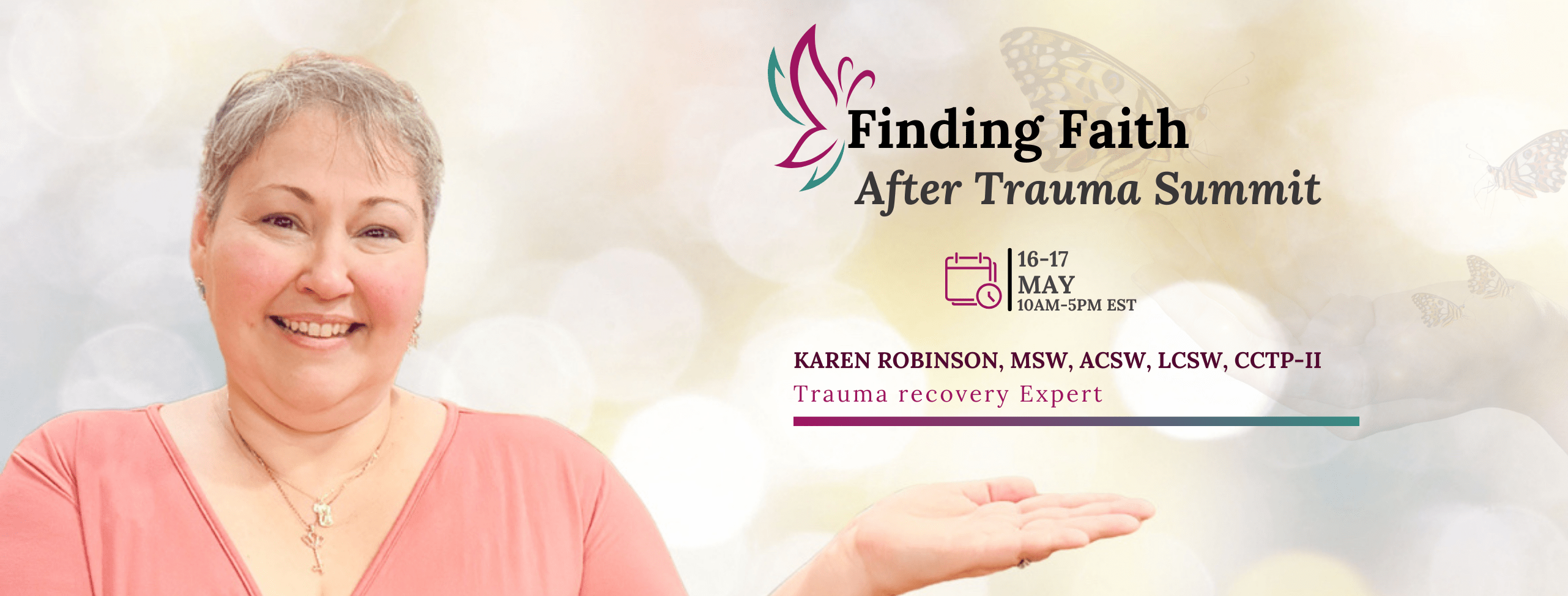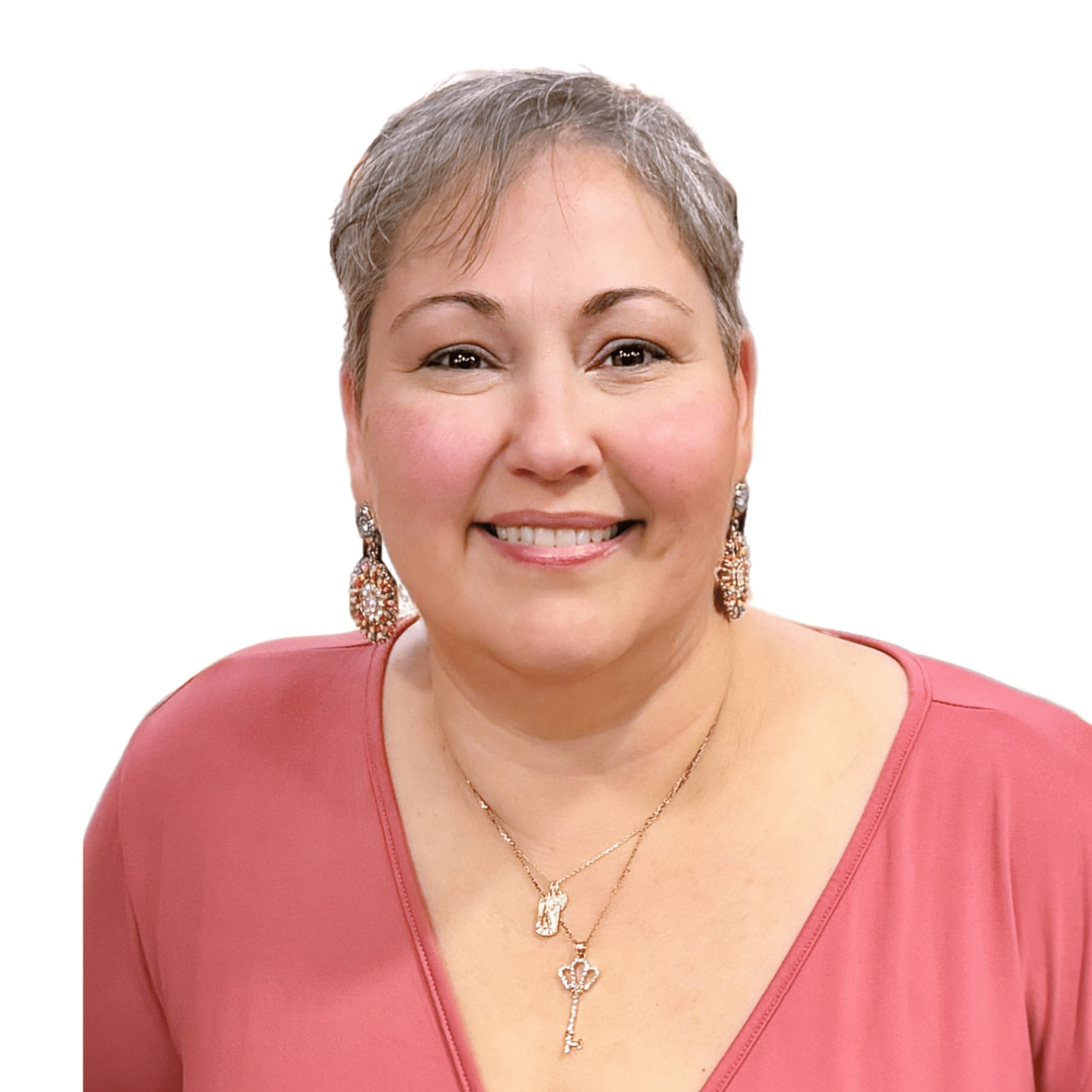A heads up that this post is not inclusive of all spiritual practices as it is simply impossible for me to include everything. The more I research, study, learn, and experience spiritual healing, the more I learn the limitless potential for spiritual healing to transpire. Spiritual healing can take many forms, offering unique benefits and paths to wellness. As a therapist and transformational coach, with extensive experience in trauma recovery, I have observed how different spiritual practices can profoundly affect a survivor’s mental and emotional health. Here, I will explore a variety of diverse spiritual healing practices highlighting their importance and strength in a survivor’s healing journey.
I’m going to include ten of the most common spiritual practices, but you can see I took creative license and attempted to add others within the headings and body of the descriptions. Creativity is a spiritual practice as well!
Please attend my free event: Finding Faith After Trauma
Meditation and Mindfulness
I’m starting with the most challenging practice! (My opinion). Meditation and mindfulness are the most widely recognized forms of spiritual healing as these practices can be found everywhere and anywhere in the world. These practices involve focusing the mind and becoming aware of the present moment. There is evidence that even practicing a few minutes of meditation per day can make a marked difference in your vital signs, your stress level, and feeling more centered. If you can patiently discipline yourself to practice meditation consistently, you can reduce your stress even further, increase calmness, improve clarity, and promote contentment. For my clients who are complex trauma survivors and have a high degree of anxiety or restlessness, meditation feels out of reach for them. Stilling their mind leads to rapid cycling of thoughts leading to feel there is something wrong with them for not being able to “be still.” With these clients, we often start off with mindful activities such as mindful walking, mindful brushing of their teeth, mindful eating, etc. Learning mindfulness skills empowers them to start slowly focusing their mind on one activity. This starts to quiet the mind more and leads the way to deeper meditative process. The main lesson here is to not give up! Keep trying.
Prayer and Reflection
For many of my clients, prayer is a foundational principle of their spiritual life that can also serve as a powerful healing tool. The discipline of prayer can be a way to surrender worries, seek comfort, and connect with a higher power. In full disclosure, I find prayer difficult. I’m not sure if it is about finding the right words, rushing through my day too much, or doubts get in the way. I’m sadden about this as a child, I was fervent with my prayers. As I’m becoming even more committed to my own trauma healing, prayer is vital for me. I have been starting and ending my day with prayer for a short period of time and already feel more centered and grounded. Other reflective practices, such as journaling or contemplative prayer, will allow you to explore your thoughts and emotions in a structured, spiritual context. Journaling your answered prayers also strengthens your faith!
Faith-Based Communities Support & Sense of Belonging
My clients with moral or religious injuries have not always found comfort in their places of worship. I encourage them to keep seeking. You deserve a place of faith that supports you and empowers you. We all want to feel like we belong and fit in. We want to not feel judged and condemned as this doesn’t empower us to feel hopeful. Participation in faith-based communities that offer support and a sense of belonging are vital for emotional and spiritual well-being. Faith communities can provide you with love, understanding, and practical support during tough times, as well as a shared space for worship and spiritual practice.
Prayer meetings, bible studies, spiritual text readings, workshops, and support group meetings are all important pieces of what faith communities can include to provide a greater sense of purpose and belonging for their members.
Energy Healing
Energy is so interesting! It fits in the realm of scientific and spiritual healing. I find this so exciting as new to my studies this year, is working on getting certified in an energy modality called, Core Talk. Energy healing practices, such as Reiki, Qigong, Polarity, Biofields, Chakras, and Healing Touch, focus on moving the energy flows in your body to improve balance and promote health. Practitioners of these techniques believe that enhancing the flow of energy can support healing, not only physically but also spiritually and emotionally.
I don’t feel qualified yet to elaborate in this area as I’m a fairly new student to energy healing. However, energy healing is one of my pillars in my Six Pillars of Trauma Healing and thus I will be writing more about this modality/practice in the future.
Spirituality in Nature
Many of the survivors in my practice are disenchanted with God or don’t believe at all. Most of them do believe in spirituality and find connecting with nature is a form of spiritual healing that resonates with them. Activities like hiking (especially in forest - forest bathing!), gardening, or simply spending time in a natural setting can help reduce stress, improve your mood, and create a sense of peace and connection to the earth.
It is my belief that God, our higher power created nature and made it a source of comfort for all. Thus, I’m able to meet my client where they are at. It is not my job as their therapist to force my beliefs on them. I do share my beliefs if they ask or if our conversation takes us there. I also validate any pain they have experienced in and outside their community of faith.
Finding Faith After Trauma Summit
May 16-17 at 10am-5pm EST
Spiritual Rituals
Rituals and ceremonies, whether personal or communal, can be powerful experiences in spiritual healing. They often mark significant life transitions, losses, or achievements and help individuals process their experiences within a spiritual framework. These practices can affirm your faith journey and provide comfort.
Lighting a candle, baby christenings/dedications, baptisms, last rites and other rituals are the most common rituals in Christianity. Other cultures practice rituals that include longer periods of fasting and spiritual observations of holy days of various lengths.
Movement-Based Spiritual Practice
There are many ways you can connect to your higher power whether you believe God resides in you. There are movements that can aid you in connecting to your inner healer. Some of these options include yoga, tai chi, and other movement-based practices combining physical movement with spiritual focus, promoting holistic healing. These centering practices often incorporate breath control, meditation, and physical postures, which are beneficial for mind, body and spirit.
Sound/Vibrational Healing
More places of faith are incorporating sound healing in their worship services. Sound healing is more than chanting and singing. It also incorporates music and a mix of instruments. Unconventional instruments like singing bowls, gongs, or tuning forks produce sounds that promote a state of relaxation. I also love the vibration of the drums as it feels soothing or can create a sense of joy. Sound therapy can lower stress, decrease mood swings, and improve sleep.
Why do you think babies fall asleep when the vacuum is running or in the car? Is it the sound or the vibration calming them? I vote that it is both. We all want to be soothed and our ultimate creator knows this about us!
Creativity
Bible journaling, art journaling, crafting, sculpting, painting, drawing, art therapy, all allows you to express yourself in ways that words cannot. Creativity offers a way to explore and release emotions. When creating, you are tapping into your inner wisdom that resides within your essence and your intuition.
When you are being creative, you enter into a state of flow that blocks out past troubles and future worries. You may also find you are fostering a deeper connection to your higher power when in this state of flow that leads to calmness and contentment.
Reading and Studying Spiritual Texts
Are you asking yourself what exactly is meant by spiritual texts? I’m sure there is great debate in this area, but for the sake of respecting cultural differences and in spiritual unity, a spiritual text is what diverse spiritual communities use to guide their faith or religious based practices.
Engaging with spiritual texts or literature can provide insights, comfort, and guidance. I have found reading my bible, devotionals, and spiritual commentary to be healing for me. The best way I can describe it… is hopeful. I love how I feel centered and calm during my quiet reading time. Some clients report feeling a similar way. I believe our humanity feels compelled to seek wisdom from various sources, and if you believe the same thing, you may find answers to your spiritual questions and deepen your understanding of yourself and your higher power on your spiritual reading path.
My Final Thoughts
Spiritual healing is a deeply personal journey that can include diverse practices tailored to your beliefs and needs. Whether through meditation, community support, or creativity, each practice offers unique perspectives to your spiritual healing post trauma. It's important to explore different options and find the practices that resonate deeply with you, that provide comfort and promote healing in your spiritual journey. As always, it’s advisable to combine these spiritual practices with professional guidance when dealing with deep-seated trauma or mental health issues. Thank you for exploring this topic with me!




Your blog 'Healing Journey' is a testament to the power of storytelling in healing.
Thank you Ms. Beverly for your beautiful comment.